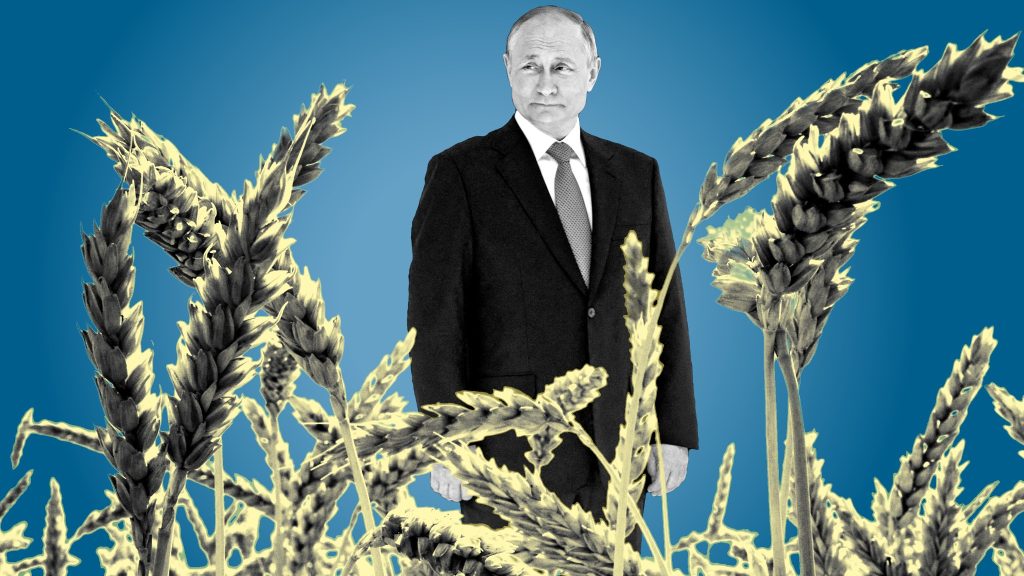
After many years of exploitation of Africa, African leaders have begun to speak out.
Written By; Bahattin Erkol – Sep14, 2023
The chain of events started in February 2022 when the military junta in Mali forced the withdrawal of French troops, and continued in June 2023 when the President of Kenya announced an end to dependence on the IMF and the World Bank. In August, the President of Burkina Faso announced that France would end its presence in the country. In Niger, located in the centre of the Sahel region, following the military coup, the junta banned the export of uranium and gold to France and the EU. Finally, the anti-French military coup in Gabon shows that this series of coups is no coincidence.
First of all, the uranium issue should be clarified. Considering that 15 per cent of France’s uranium needs and one fifth of the EU’s uranium imports are met from Niger, the series of coups can be seen as Russia’s new strategic moves to corner the EU on energy. The other two countries from which EU countries source uranium are the Russian Federation and Kazakhstan.
After the 2022 winter natural gas chess, it is obvious that uranium chess is being played this year. The EU’s increased sanctions against Russia and continued military assistance to Ukraine have led Russia to direct
natural gas to new customers such as China and India, while at the same time trying to put the EU under pressure by attracting African countries to its side.
Russia’s near-term goal is to shift the world’s focus from Ukraine to Africa. In order to achieve this goal, Russia has three big trump cards: grain diplomacy, Wagner and BRICS.
In August 2023, it was reported that the BRICS summit in Johannesburg agreed on the admission of new members. After the summit, Saudi Arabia, Iran, Egypt, Argentina, Ethiopia and the United Arab Emirates (UAE) became full members of the Union. It is foreseen that the name of the enlarged BRICS may change and a new Warsaw Pact may be formed. Through this alliance, Russia and China seek to weaken Western hegemony anywhere in the world.
Grain diplomacy can be considered as Russia’s soft power in Africa. Poverty, young population, increasing unemployment and questioning the existing colonial order are leading African countries to new alternatives. At the second Russia-Africa summit held in Moscow on 27-28 July 2023, Russian leader Vladimir Putin announced that they would export grain to Africa to help avert a global food crisis. Putin also expressed readiness to expand Russian trade missions and encouraged African countries to establish intergovernmental commissions. He also announced that 25-50 thousand tonnes of free grain would be given to Burkina Faso, Zimbabwe, Mali, Somalia, the Central African Republic and Eritrea within three to four months. By providing free grain to starving Africa, Russia is strengthening its presence in these lands. Russia is taking advantage of the growing hostility towards the West in Africa to gain a foothold. By actively using grain diplomacy, it openly expresses that it is an alternative to the West.
The term “intergovernmental commission” used at the Russia-Africa summit was used as a special diplomatic manoeuvre. Countries usually establish partnerships through military co-operation and security agreements. However, due to the Ukraine War, Russia’s ability to deploy military personnel in African countries is limited. Therefore, it prefers to put pressure on Europe from the south by using Wagner.
Soft power is an important, but not sufficient, argument that leads to results in international relations. Soft power must always be supported by military power. At this point, we see Wagner as the military power supporting grain diplomacy. Defining Wagner as a “mercenary group” does not fully express its specific weight. Considering Wagner as a “force command” such as land, naval or air forces will make it easier for us to understand its mission.
In recent years, there has been a great awakening in Mali, Central African Republic, Burkina Faso, Niger and Gabon against the “colonialist” West. Although this awakening has been suppressed by the Western powers through military means, Russia has been supporting the authorities close to it in these countries with Wagner.
The “suspicious” death of Wagner’s founder Prigojin on 24 August was an important milestone on the road to the nationalisation of Wagner. It is highly probable that the Russian state mind had planned Prigojin’s
replacement before the plane crash. They are just waiting for the right time to make their move. To find Prigojin’s replacement, it is enough to master situational awareness. When we think like the Russian mind, it becomes clear that this appointment should be made as soon as possible. The military authority that took over Niger after the coup d’état is now under threat from ECOWAS (Economic Community of West African States), of which 15 countries are members. It would be appropriate to say that the armed force of ECOWAS is under the command of France. However, it is known that General Saligou Mody, the head of the coup government in Niger, contacted Wagner during a visit to neighbouring Mali. The junta needs Wagner’s support to hold on to power. The appointment must be made as soon as possible, but events similar to the uprising on 24 June must not be allowed to occur. Therefore, the person who will head Wagner should be a name that Putin trusts the most. At this point, Russian Chief of General Staff Gerasimov stands out.
Another advantage of Gerasimov is that he is the founder and namesake of the Hybrid War Concept known as the Gerasimov Doctrine. Considering that Wagner was a militia force rather than a conventional army, it becomes clear that the hybrid warfare concept must be used. In his 2013 article “The Value of Science in Foresight”, Gerasimov explained this concept as follows: “Today, there is an increasing need to use information warfare and special force operations covertly under the guise of Peacekeeping and Crisis Management, and the opposition must be influenced in order to maintain a continuous front on enemy territory. In addition, technology and the information environment create asymmetric opportunities to influence the enemy’s state echelons and population and to reduce the combat effectiveness of its Armed Forces.”
We may soon see Gerasimov taking over Wagner. This shows us that the series of coups in Africa will continue and that the Western powers, particularly France, will be forced to withdraw from this continent.
Thus, France and the EU will be forced to sit at the table in the locked war in Ukraine. In addition, the sanctions imposed on Russia are being lifted by cutting uranium imports to the EU.

Bahaddin Erkol graduated from the National Defense University as a naval officer in 2002.After serving in various units of the Turkish Armed Forces and at the Russian desk, he retired in 2023. In 2016, he completed his master's degree in international relations and security on "Sharing of Maritime Jurisdiction Areas in the Black Sea in Case of Crimea's Connection to Russia (Unpublished Thesis)". Bahaddin Erkol, who is fluent in Russian and English, worked as a Russian translator for a short time after his retirement. He currently conducts research and writes articles specifically on Russia, Ukraine and the Black Sea. He is married and the father of two children